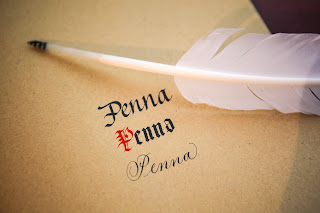Latin has two ways of saying ‘I have, you have etc.’ but we will look at one using words that you already know:
Quid tibi est? This literally means ‘What is there to you?’ but it translates as ‘What do you have?’ Note: the same phrase can also mean ‘What’s the matter with you?’
[i] Mihi ¦ [ii] est ¦ [iii] equus: This literally means ‘[i] To me ¦ [ii] (there) is ¦ [iii] a horse’ but it translates as ‘I have a horse’.
Tibi ¦ est ¦ liber: (literally) ‘To you (there) is a book’ but translates as ‘You have a book’.
Eī ¦ est ¦ villa: (literally) ‘To him / her (there) is a country estate’, but translates, depending on context, as ‘He / she has a country estate’.
Mihi est amīcus. Eī nōmen est Mārcus. I have a friend. His name is Marcus.
Mihi est soror. Nōmen eī Flāvia est. I have a sister. She’s called Flavia.
And, if you don’t have something, you use the word nōn (not) and place it before the verb.
Mihi nōn est liber. I don’t have a book. (Literally: To me there is not a book.)
Hic liber nōn est mihi. This book is not mine.
Here are some things that [i] you have, and [ii] you don’t have. How would you say it?
[i] You have …
- liber: book
- papȳrus: paper
- penna: ‘pen’ (actually a quill pen; the first meaning of penna is feather)
- stilus: stylus, instrument for writing on wax tablets
- tabula: wax writing tablet
[ii] You don’t have …
- aqua: water
- cibus: food
- domus: house
- pecūnia: money
- vīnum: wine
The images below show [i] the origin of the word 'pen' i.e. 'feather', from which quill pens were manufactured
[ii] 'liber' (book) but the Romans did not have books in the way we have them today, rather they were written on papyrus and bound together in the form of scrolls.


No comments:
Post a Comment